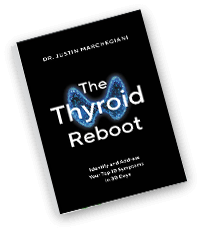Description
The Russian scientist Elie Metchnikoff (1845 – 1916) popularized the idea of “Dys-symbiosis” or “Dysbiosis,” which describes an imbalance in the microecology of the digestive tract. When the microbial balance of the gut is disturbed, opportunistic, or “bad,” bacteria can overgrow and mitigate the effects of the “good”, predominant bacteria needed for a healthy gut.
Advantages of the Organix® Dysbiosis Profile
- Reports D-arabinitol, a specific marker for Candida sp., can cause disease in patients, especially immunocompromised.
- Reports D-lactate, an indicator of L. acidophilus overgrowth and carbohydrate malabsorption.
- Utilizes the LC/MS-MS method, providing more stability, accuracy, and sensitivity in measuring organic acids at low levels for optimum test results.
- A single urine specimen is easy for patients, increasing patient compliance.
- Discrimination between microbial classes allows for more focused and targeted therapies.
- An economical follow-up test for practitioners to monitor targeted therapy.
Why use the Organix® Dysbiosis Profile?
The Organix® Dysbiosis Profile is a urine organic acid test measuring the by-products of microbial metabolism, and is particularly useful in detecting the presence of pathogenic microbial overgrowth. As a stand-alone test, the Organix® Dysbiosis Profile is a great follow-up option to the Organix® Comprehensive Profile, allowing the clinician to assess microbial overgrowth and guide and monitor targeted therapy in patients.
Is Urine Organic Acid Testing Useful for Assessing Dysbiosis?
Urine contains unique products of microbial metabolism, which are used to measure small bowel yeast and bacterial overgrowth. Except for hippurate, human cells do not usually produce compounds measured in the Organix® Dysbiosis Profile, such as D-arabinitol. Unfriendly intestinal microorganisms, however, can manufacture them in relatively high quantities. These compounds are absorbed into the blood from the intestines and eventually appear in a urine organic acid test.
Stool testing also gives insight into the gut microbial population of the large bowel.
The Organix Dysbiosis Profile and the GI Effects Stool Profile can be combined to provide an overall snapshot of a patient's gut health.
Symptoms of dysbiosis can be as diverse as:
- Behavioral disorders
- Chronic fatigue
- Depression
- Headache
- Immune dysfunction
- Insomnia
- Irritable Bowel Syndrome (IBS)
- Joint pain
- Learning disorders
- Nutritional deficiencies
- Food allergies
- Skin disorders, acne
*Not available in New York
Test Type: Urine Test
Warnings:
For professional use only. Not intended for self-diagnosis. Follow specimen collection and shipping instructions exactly. Interpret results within a comprehensive clinical evaluation. Not available in New York State. Only licensed healthcare providers may order this test.
========================
IN CASE YOU MISSED IT:
Probiotic Intolerance Explained – Why Good Bacteria Can Go Bad with Rob Edwards | #450





Reviews
There are no reviews yet.